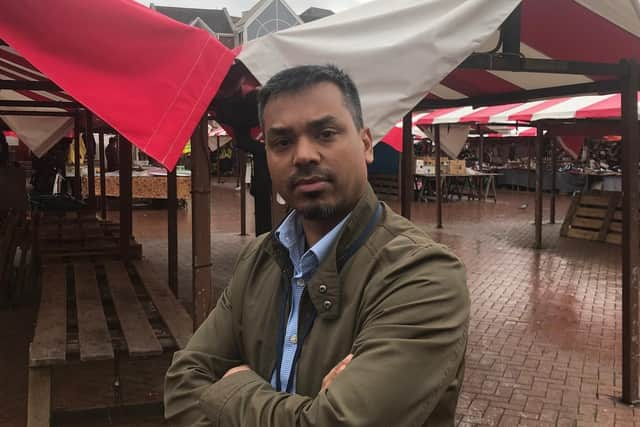Northampton councillor calls on authorities to lead on coronavirus workplace risk assessments for BAME communities
and live on Freeview channel 276
A Northampton councillor has called on councils to undertake coronavirus risk assessments for ethnic minority communities at work.
Black and Asian minority ethnic (BAME) groups have been found to be up to 50 per cent more likely to die if they contract Covid-19 by Public Health England (PHE).
Advertisement
Hide AdAdvertisement
Hide AdThe British Medical Association has urged authorities to start assessing the risks for ethnic minorities, as recommended by PHE in a second report.


Labour councillor for Castle ward, Anamul 'Enam' Haque, wants the borough and county councils to take the lead on the issue as the lockdown restrictions continue to ease.
"As the shops reopen and people return to the town centre, the safety of customers and working colleagues is paramount," he said.
"I want to see all work places supported to put in protective measures and to carry out full risk assessments before opening.”
Advertisement
Hide AdAdvertisement
Hide AdA Northampton Borough Council spokesman said it is in the process of assessing its approach and is already complying with the Government guidance, with around 75 per cent of staff working from home and appropriate risk assessments in place.
Northamptonshire County Council is currently consulting with trade unions on its own risk assessments for its staff, which will take ethnicity into account.
“We take our duty of care regarding the health, safety and wellbeing of all of our employees very seriously and currently where staff can work from home then this is what we are asking them to do," a council spokesman said.
"At the same time, in line with guidance from Public Health England, we are in the process of finalising a risk assessment process which takes into factors such as age, gender, underlying health conditions, ethnicity and pregnancy.
Advertisement
Hide AdAdvertisement
Hide Ad"The risk assessment is currently with trade unions as part of the consultation process, and we are aiming for it to be in place within the next week.”
While Cllr Haque supports non-essential shops welcoming customers once again, he is passionate about making sure BAME workers are kept safe when they are at a higher risk of death.
"I come from a Bangladeshi heritage background. In the recently published PHE report, it says that my community is twice as likely to die if they contract Covid-19 than white counterparts, while other BAME groups face an increased risk of 15 to 50 per cent.
"This is really frightening. Locally, my family and my community are doing all we can to minimise the risks and I would like to thank the mosques and the community for all they are doing to educate, protect and support."
Advertisement
Hide AdAdvertisement
Hide AdPHE was criticised for having no recommendations in its first report on the impact of Covid-19 on BAME people but a follow-up report has seven recommendations.
As well as risk assessments, better data collection about ethnicity and religion is suggested plus improving BAME groups' access to, experiences of and outcomes from NHS and other services.
Racism was also accepted as a contributing factor to increased risks for minority groups and recovery strategies should address such inequalities.
Comment Guidelines
National World encourages reader discussion on our stories. User feedback, insights and back-and-forth exchanges add a rich layer of context to reporting. Please review our Community Guidelines before commenting.